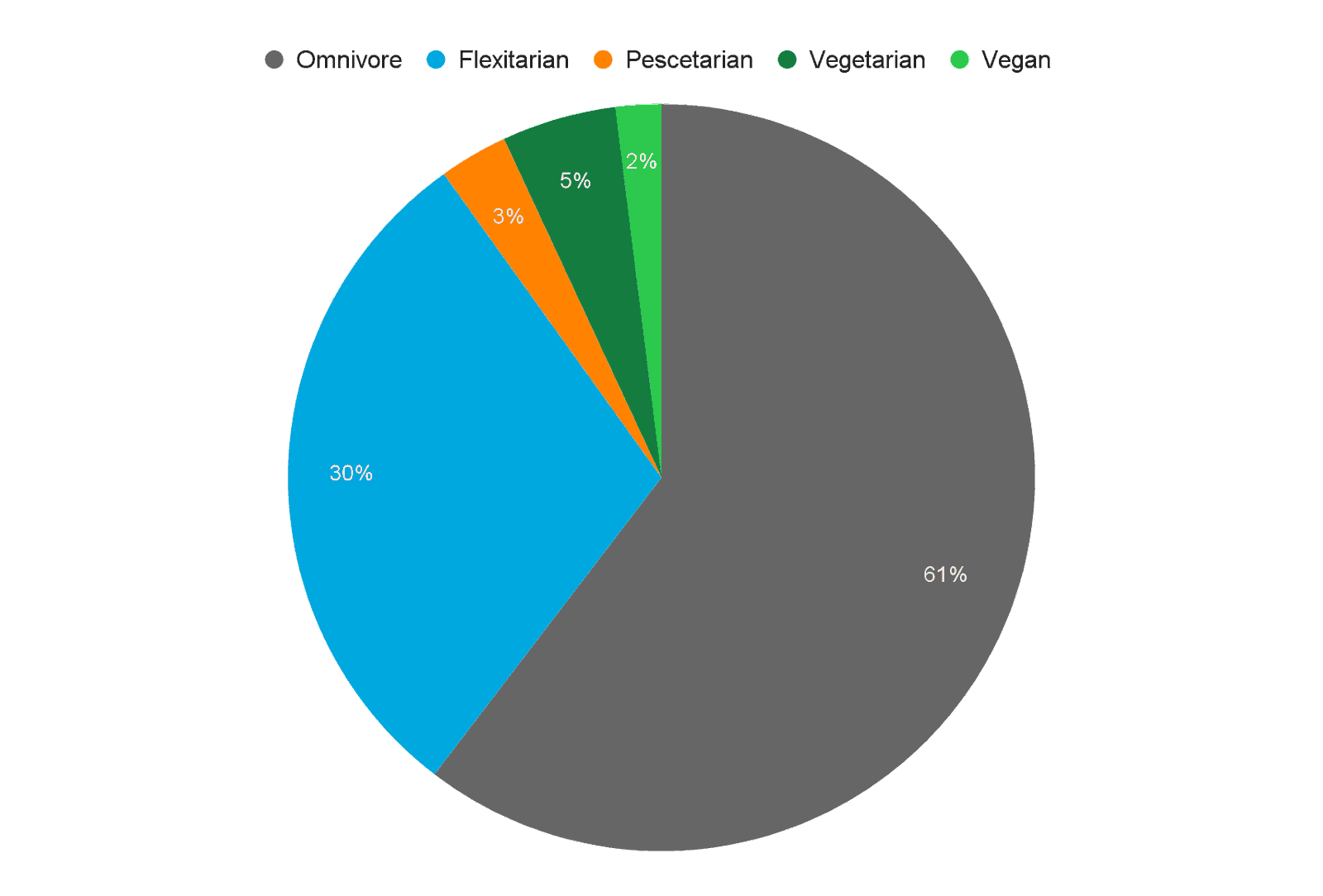ProVeg International has recently published the report ‘How to target flexitarian consumers with plant-based products’, detailing the best ways to market plant-based products to flexitarian consumers.
Flexitarians represent the biggest target segment in plant-based food retail, so it is essential your business can effectively grasp and maintain their attention. Manufacturers and retailers should focus their marketing, product development, and merchandising efforts on this segment, while also ensuring their products are accessible to mainstream consumers’ need for affordable and convenient foods. Click here to access the full whitepaper and find out more about packaging, pricing, and merchandising best practices.
Why flexitarians?
A recent pan-European Union (EU) survey led by ProVeg International found that almost 40% of EU consumers now identify as either flexitarian, vegetarian, pescetarian, or vegan. Flexitarians represent the demographic that is experiencing the fastest growth, and while they are actively reducing their meat consumption, 57% say they also want to gradually eliminate meat from their diets.

Pricing for flexitarians
Mainstream consumers are time-poor and overloaded with decision fatigue. Price is their number-one motivator and the best way to get their attention.
Despite the huge potential market mentioned above, disproportionately high retail and manufacturer margins are suppressing demand for plant-based products. Many retailers and manufacturers charge a 30–40% margin on their plant-based products, compared to just 4–8% on animal-based equivalents.

Manufacturers are calling on their business clients to lower their margins in order to make plant-based alternatives more accessible to mainstream consumers. “We push our private-label customers not to charge too high on the main market,” explains Frank Giezen, co-founder of major European manufacturer Ojah, speaking with ProVeg. “This indirectly puts pressure on the brands to lower their prices too.”
By reducing margins and lowering prices, you can attract more of the flexitarian mass market. This will drive turnover and increase your overall revenue.
If you want to access revenue examples that break down this strategy in further detail, click here to read the full article. Here, you will also find further insight into all the other effective ways to target flexitarian consumers.
For deep dives into these and other topics, check out ProVeg International’s full catalogue of articles on the ProVeg New Food Hub.





